We're still thinking about Barbie, which proves just how great it was.
Is Superhero Fatigue Killing Marvel? "Barbie" Proves Women Are Craving Nostalgic, Complex Media
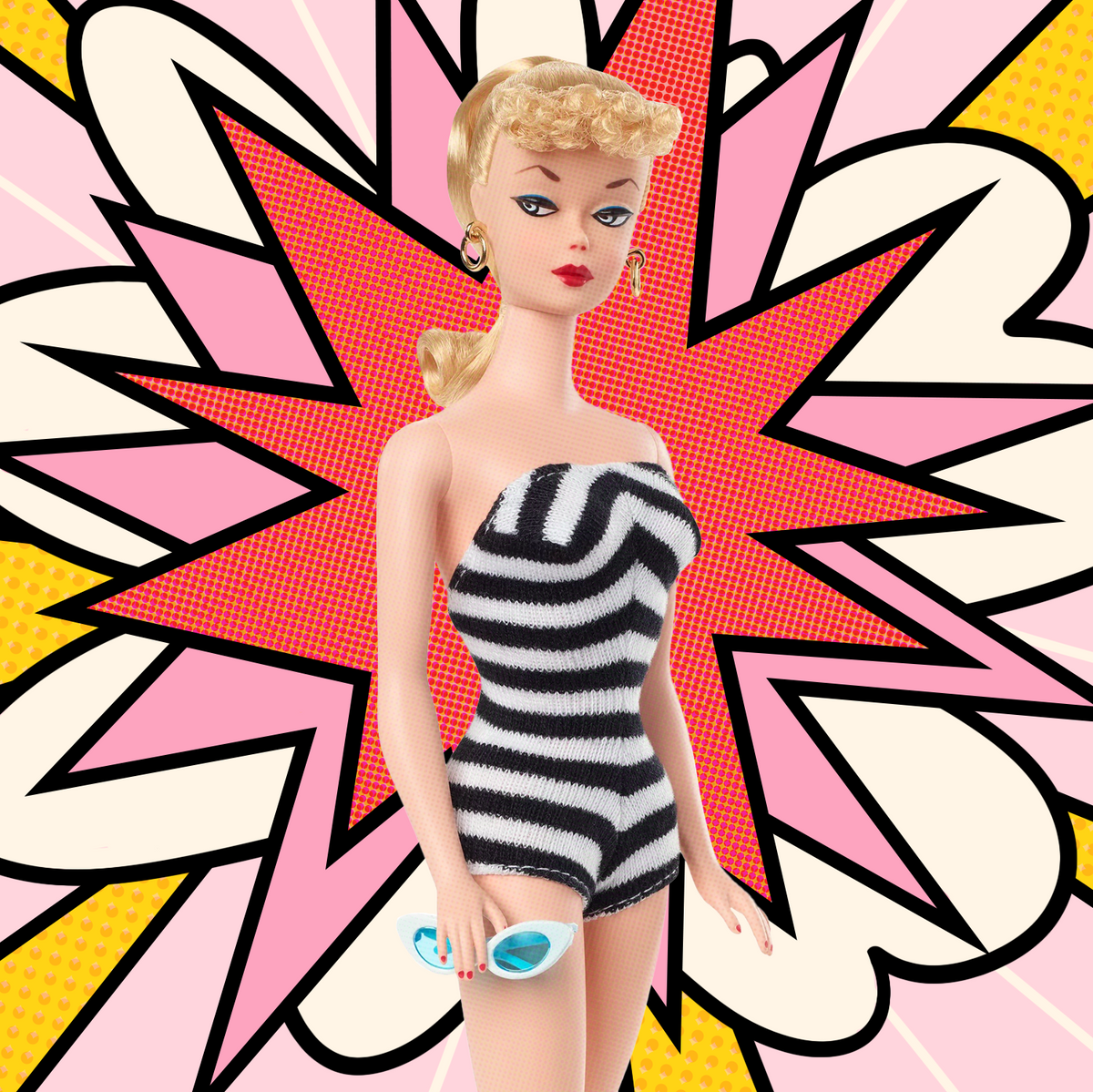
Chloe Williams serves as B+C’s Entertainment Editor and resident Taylor Swift expert. Whether she’s writing a movie review or interviewing the stars of the latest hit show, Chloe loves exploring why stories inspire us. You can see her work published in BuzzFeed, Coastal Review, and North Beach Sun. When she’s not writing, Chloe’s probably watching a Marvel movie with a cherry coke or texting her sister about the latest celebrity news. Say hi at @thechloewilliams on Insta and @popculturechlo on Twitter!
My entire life changed on May 10, 2012 when I saw The Avengers in theaters. Titles like The Incredibles and Sky High could be considered Gen Z’s introduction to superheroes, but watching my first Marvel movie felt like a coming-of-age experience. Even though it had stakes, it didn’t take itself too seriously, and seeing flawed, messy characters fight for an entire galaxy propelled me to explore the intricacies of relationships and worldbuilding in my own writing.
Clearly, I wasn’t the only one who felt the impact of these stories — the first MCU movie, 2008’s Iron Man, grossed over $585 million, and with one box office record after another, fans continually look to the Marvel Cinematic Universe for empowerment, for the inspiration that we can be brave too. Although these films aren’t the first superhero movies ever made, their wit, adventure, and humanity filled a gap for consumers. Pop culture was never the same.
The Marvel Cinematic Universe Origin Story
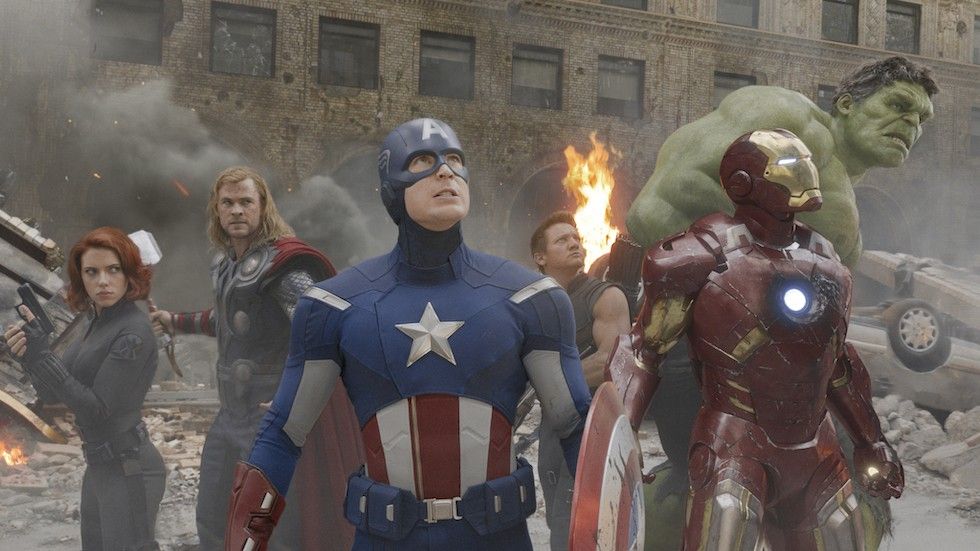
Image via Walt Disney Studios Motion Pictures/Marvel Studios
After trilogies like Spider-Man and X-Men, Marvel Entertainment’s Avi Arad formed Marvel Studios so they could produce their own films. He brought on Kevin Feige (who’s currently the Marvel Studios president) to create the world we now know.
“I have been a fan of the MCU since my senior year of college,” says Katie Forbidussi, 24. Even though she hadn’t seen any of the movies before 2019, she ended up watching all of them with her brother. “He has all of the DVDs and even made a flow chart for *his* view on the proper order to watch — chronological beginning with the first Captain America, of course.”
Captain America: The First Avenger is also when Bekah Covey, 23, got into the MCU. Her favorite movies now? “Probably the Guardians of the Galaxy trilogy and Thor: Ragnarok,” she says.
Iron Man, Captain America, and Thor opened the door for a variety of stories that set the tone for what was possible when creating an expansive media universe. It all culminated in 2019’s Avengers: Endgame, a movie 10 years in the making that brought together so many characters, plotlines, and themes that it attracted every kind of Marvel fan. Not to mention that it was one of the year’s (if not the decade’s) top cultural moments. We showed up to the theater wearing our favorite character’s merchandise, cheered when our favorites returned, and cried when we said goodbye to the original cast.
Today, the #Marvel hashtag has been viewed 277 billion (yes, billion) times, while the MCU as a whole has made just under $30 billion. With so much social media coverage and conversations around the films, it felt like nothing would ever match the cultural phenomenon that is the MCU.
Cut to July 2023’s Barbie.
With so much buzz around Greta Gerwig’s hotly-anticipated release, it looked like we might finally see another film dethrone the MCU in the zeitgeist. But the hype around Barbie is much more than breaking a box office record. Marvel fans have spent a decade with fleshed out, powerful versions of their childhood toys on the big screen, while adults who loved Barbie dolls as kids never had that opportunity. This summer, it was our turn.Superhero Fatigue Led To The Rise Of A New MCU...The Mattel Cinematic Universe
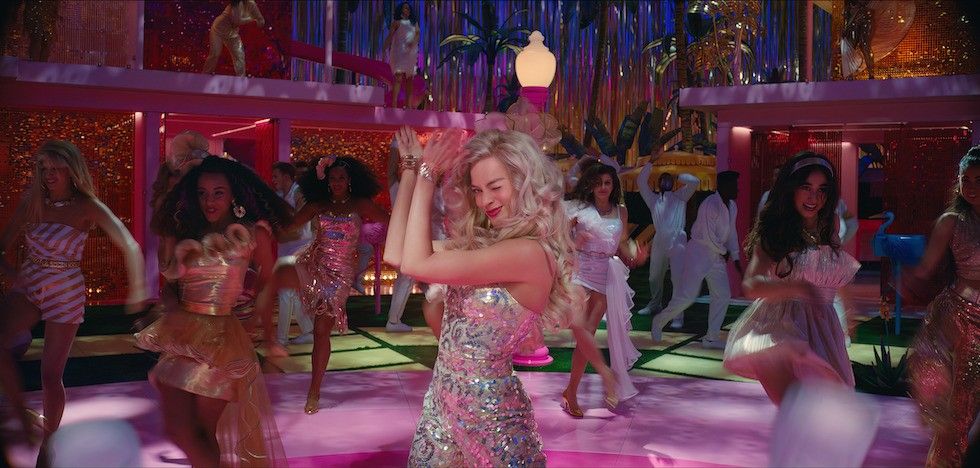
(Center) Margot Robbie as Barbie in Warner Bros. Pictures’ “Barbie,” a Warner Bros. Pictures release.
Photo by Warner Bros. Pictures.
Even though they’re toys, Barbies (as well as Marvel action figures, Polly Pockets, Webkinz, and American Girls) brought mature themes down to a scale we could understand as children, and introduced us to a lot of life skills. They provided examples on how to be in all kinds of relationships, how to create stories, and even how to care for someone else.
The Barbie brand brought in $1.49 billion in 2022, and thanks to the Barbie movie (which has made $1.35 billion at the box office), the success of the brand in 2023 will only grow. The popularity of the film, and the way it continues to impact fashion, decor, and Halloween costumes, shows a strong desire for social commentaries with emotional complexity.
“I loved it, 4.5 stars on [movie rating app] Letterboxd. [Director Greta Gerwig] did it again,” Covey says. “Everything from the costumes to the soundtrack to the acting was perfection. I loved seeing Barbie’s character arc — it felt like an allegory for puberty almost.”
“I went into it without a lot of context and was a little unsure of how I’d like it but it completely blew away my expectations,” Forbidussi says. “Some of my favorite scenes in particular were of course America Ferrera’s triumphant speech on what it means to be a woman, and the beautiful moment Barbie shares with the older woman on the bench outside the police station.”
Rather than fighting aliens or super spies, Barbie simply confronts what it means to be a woman, a journey that is anything but simple. Because the plot is scaled back, it allows for smaller moments, hilarious interactions, and the overall emotion to shine. Rather than spending the entire film on the offensive, fighting a single villain, Barbie’s exploration of the world around her comforts and empowers the viewer. The movie’s point is to breathe and to feel. There’s less to analyze, and it’s fun to just go on the ride. But that doesn’t mean the movie doesn’t leave you thinking, and Covey says it feels relatable for the post-modern age. Forbidussi agrees.
“I think her conversations and realizations around morality and what it means to be human are definitely accessible,” Forbidussi says. “My favorite themes or messages right now are being unapologetically yourself in whatever that means to you and always providing a spirit of kindness, positivity, and grace both towards yourself and others.”
Seeing a movie that embraces (almost) every kind of woman’s experience is a breath of fresh air we don’t often get. Barbie celebrates the good parts of womanhood and brings the difficult ones to light, and the inclusion of all the moments we regularly experience as women feels like a giant wink from the filmmakers. It’s like the team behind Barbie actually considered the female consumer. What a concept.Stories For And By Women Will Only Improve Box Office Success
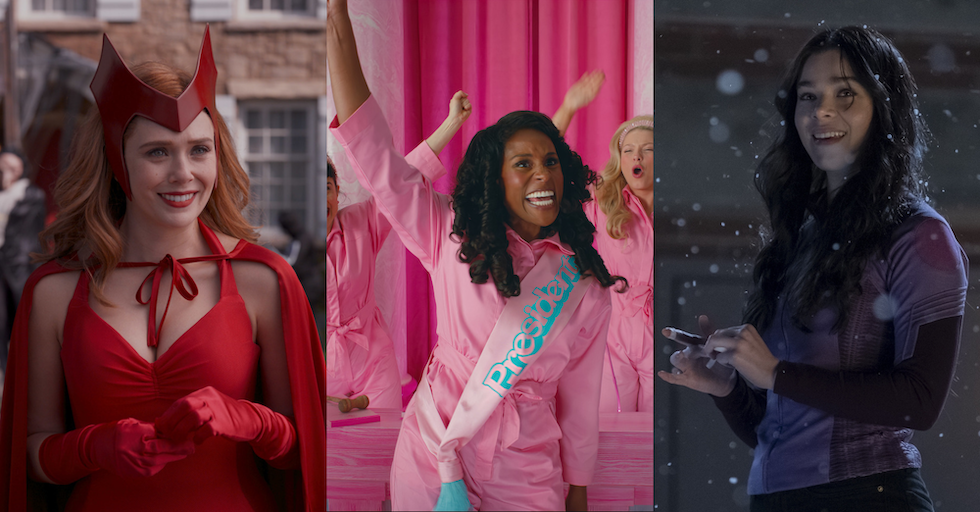
(L-R) Photos by Marvel Studios; Warner Bros. Pictures; Chuck Zlotnick/Marvel Studios
We’re always looking for comforting media, but after the events of COVID, and a 25% overall increase in anxiety, whose nostalgia we’re tapping into is shifting. Movies like the MCU, Transformers, and the latest Star Wars trilogy prove that nostalgia can have major payoff. I love action movies as much as the next person, but Hollywood has overlooked a whole demographic who preferred dolls over legos or Transformers. The superhero fatigue became very, very real.
We’re craving stories that center the human experience but still balance power, humor, and warmth instead of hypersexualized characters or trauma. And if the rabid consumption of Barbie, Taylor Swift's Eras Tour (whose film version broke AMC’s record for single-day ticket revenue), Beyonce’s Renaissance Tour, and The Summer I Turned Pretty has proven anything, it’s that women are severely lacking media that celebrates and respects the female experience.
In 2021, 31 percent of the top-grossing movies were led by women, but only 25 percent of those films had women working as directors, executive producers, producers, writers, cinematographers, and editors. While the number increased from 16 percent in 2008 (the year Iron Man came out), there is still plenty of room for growth.
One woman spearheading it all is Barbie’s director, Greta Gerwig. She’s also the creative genius behind Lady Bird and Little Women, which earned her Oscar, BAFTA, and Critics' Choice Awards nominations (plus a Critics' Choice win). Gerwig’s care, attention, and respect for womanhood are what makes Barbie a successful film — not the fact that it’s based on a feminine toy.
“Sometimes we look at the idea of feminism as some unapproachable or extremely complex concept,” Forbidussi says. “To me, sometimes all it needs to be about is simply providing a space to recognize the issues that women face and uniting under the same premise of wanting to make our world a better and more equitable place for everyone.”
“I think a big part of feeling empowered for me personally was seeing the whole thing come to life from a woman’s perspective,” Covey says. “If Greta hadn’t been the director, I don’t think the themes and character arcs would’ve been so well done. It really gives me hope for my future in the industry.”
While Marvel movies don’t center women’s experiences (“I haven’t necessarily watched them feeling empowered as a woman specifically,” Forbidussi admits), they have taken major strides by introducing us to more female characters.
Scarlett Johansson’s Black Widow was the only (very oversexualized) superhero for a few years, until she was joined by fan-favorites Wanda Maximoff and Yelena Belova, as well characters like Black Panther’s Shuri, Okoye, and Nakia, Shang-Chi and The Legend of the Ten Rings’ Katy and Xu Xialing, and the titular character in Captain Marvel.
While these are some of my most beloved characters, authentic empowerment in the MCU continues to fray. Turning Wanda into a villain in Doctor Strange: Multiverse of Madness disregarded her arc in WandaVision, while constant complaints about the storytelling and CGI in SheHulk — which head writer Jessica Gao told Hollywood Reporter actually reflects an overwhelming workload — led a lot of people to talk negatively about the female experience (and give the show a 32% audience rating on Rotten Tomatoes).Is The Revolving Door Of Superheroes Generating Superhero Fatigue?
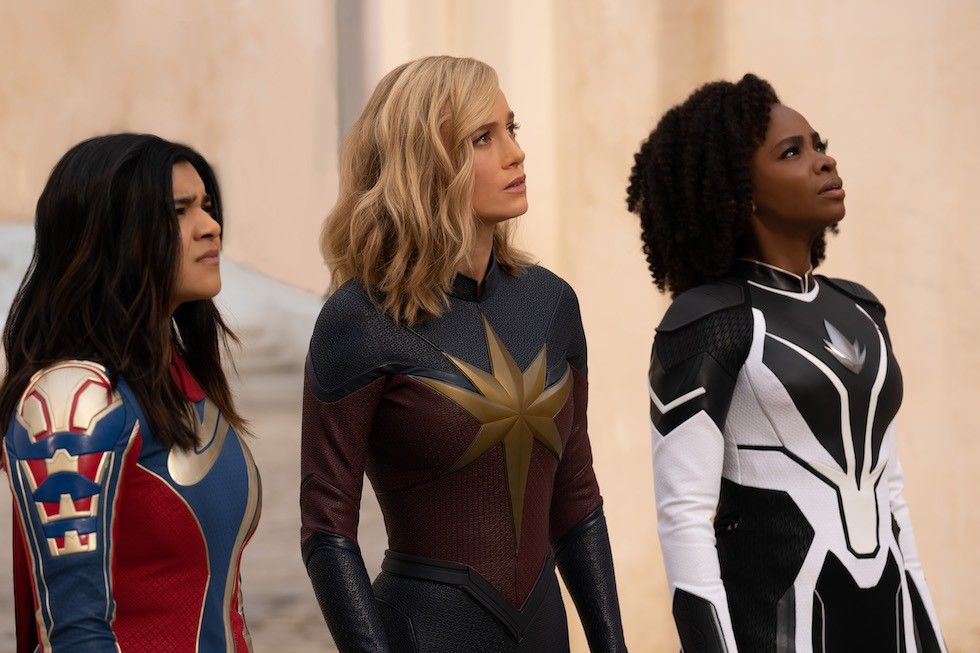
(L-R): Iman Vellani as Ms. Marvel/Kamala Khan, Brie Larson as Captain Marvel/Carol Danvers, and Teyonah Parris as Captain Monica Rambeau in Marvel Studios' THE MARVELS.
Photo by Laura Radford/Marvel
SheHulk isn’t the only project that has felt rushed. Since March of 2021, the MCU has released 20 titles — both films and full multi-episode television seasons — and in the process, they’ve lost sight of the character arcs fans fell in love with. Plus, the inclusion of the Multiverse as a whole basically erases the impact of any decision, because there will always be another version of an event or a character.
What was once nostalgic has become overrun with so many plotlines that new releases are somewhat anxiety-inducing. Even director Nia DaCosta (who’s at the helm of this fall’s The Marvels) admitted that she knows superhero fatigue exists.
“I definitely have personally had a decline in interest, especially since I don’t have Disney+,” Covey says. “I feel like I’ve gotten very behind on the characters and plots. But there’s so many shows I’d need to watch to catch up and I simply don’t have the energy.”
“As much as I loved WandaVision and Loki, I think putting these shows (and others) behind a paywalled streaming platform makes them so much less accessible for the fanbase, especially when they include key plot elements and teasers for the next phase of movies,” Forbidussi says. “There’s just too much to keep up with so I’d almost rather pick and choose what I have time for and just catch up on everything else after the fact by reading spoiler news or social media threads.”
With its storytelling choices and release strategy, Phase 4 has left permanent patterns. Any crazy plotline (I will literally never recover from Wanda’s WandaVision to Multiverse of Madness pipeline) is still canon, but as we move into Marvel’s Phase 5, the MCU will be focusing on a “quality-over-quantity” mindset, via Cosmic Circus.
Even with its flaws, dedicated MCU fans (yours truly included) are still all-in. The reception of titles like Ms. Marvel and Black Panther: Wakanda Forever prove that Marvel still has the potential to tell grounded stories — as long as they elevate new voices — and social media only continues to strengthen fan connections.Finding Community
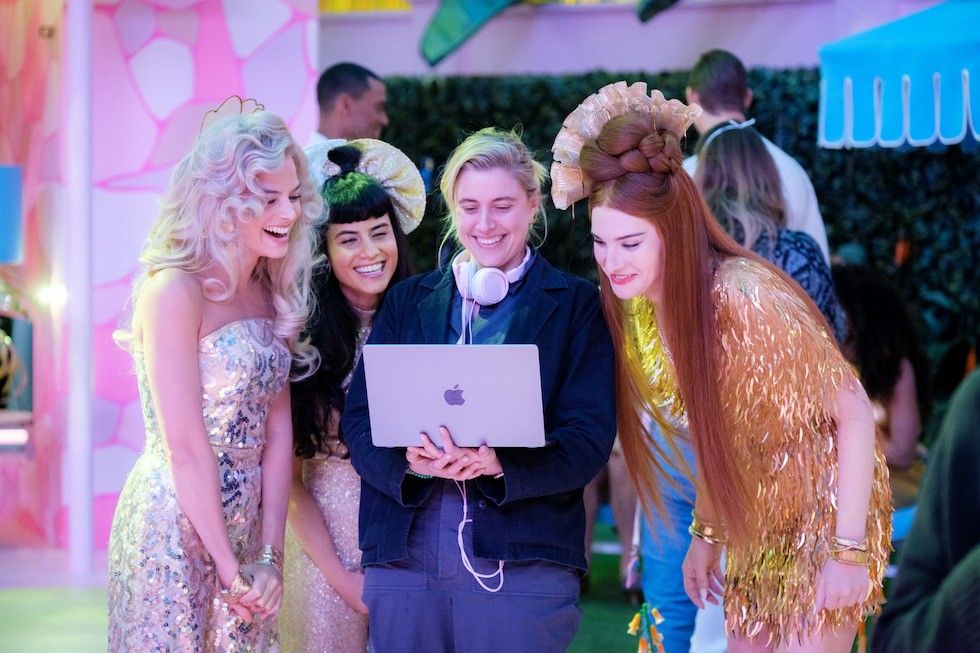
(L-R) Margot Robbie, Ana Cruz Kayne, Director/Writer Greta Gerwig, and Hari Nef on the set of Warner Bros. Pictures’ “BARBIE,” a Warner Bros. Pictures release.
Thanks to platforms like TikTok, we’re finding one another easier than ever before. You can catch up on the latest news and theories with creators like Jstoobs and theafternoonspecial, or get inspo for your next fashion project with creators like MagicWithMegD. All of these creators and the users who consume their content are united by their love for superhuman things. Because at the end of the day, these characters make us feel excited to be alive, and make us believe in humanity. Just like Barbie.
Despite the superhero fatigue we’ve all experienced the last couple of years, there is still so much potential for emotional, grounded, and detailed stories that will enrapture us. But we're also excited for this new Mattel Cinematic Universe and a plethora of other female-centric films to breathe new life into the moviegoing experience. Because we’re more than craving films that highlight the complexity of the female experience — we deserve them.
Women-Centric Movies To Look Forward To This Year
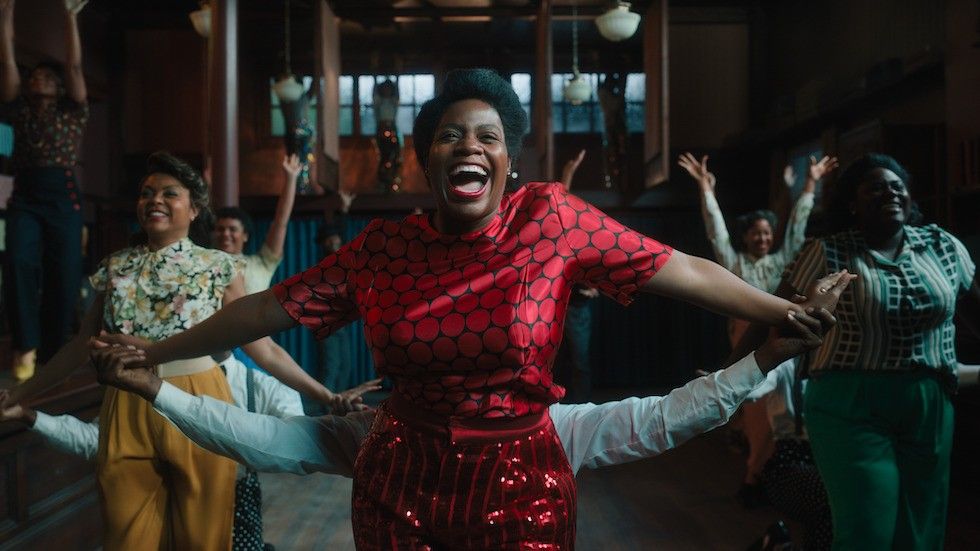
(L-R) Taraji P. Henson as Shug Avery, Fantasia Barrino as Celie and Danielle Brooks as Sophia in Warner Bros. Pictures’ bold new take on a classic, “The Color Purple,” a Warner Bros. Pictures release.
- American Girl
- Snow White
- Tangled
- Polly Pocket
- Madame Web
- Princess and the Frog
- The Color Purple
- Mean Girls
- It Ends With Us
Are you feeling some superhero fatigue? Let us know which new movie you're excited to see on Facebook!
Lead image via Mattel; Graphic via Michelle Hua/B+C



















